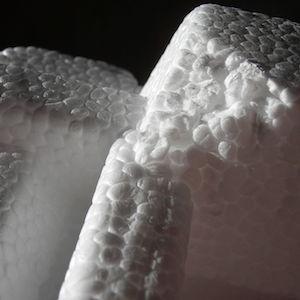When I was in 5th grade, my elementary school teacher asked all of us to conduct an experiment at home.
I chose to grow grass in two pots. (There were no bonus points for creativity.) Both pots were watered regularly and kept in the sunlight. The only difference is that one pot had a plastic bag around it -- essentially making a tiny greenhouse. My hypothesis was that the extra warmth would cause the grass in that pot to grow taller.
And it did! If I wanted to be a real scientist, I would have done the experiment 10 more times and performed a two-sample t-test to determine the statistical significance of my results. But that was above my pay grade, at the time.
Though my experiment was simple, it included all the basics of the scientific method: Observation, hypothesis generation, proper controls, and experimentation. Crucially, the experiment was based on prior knowledge; i.e., I knew about the greenhouse effect and plant growth. There was no political agenda; just a dorky kid growing grass in a pot.
Should We Celebrate Student Science if It's Wrong But Politically Correct?
Not all student science is created equal.
The Poughkeepsie Journal reports, in a story picked up by USA Today, that a 3rd grade class project on polystyrene foam (Styrofoam) cups led to a county in New York implementing a partial ban. There are few specific details in the article, but it does not appear as if the students were encouraged to do an experiment. Instead, the project was done as an exercise in "persuasive writing." The article says:
In May 2017, Kurdziel introduced her class to the issues surrounding polystyrene foam as part of their unit on persuasive writing. The class of 23 researched the issue and presented arguments to the school's fourth and fifth-grade classes.
"Polystyrene is really bad for the environement," [sic] said Tommy Ayasse, one of the students in the class.
That's true. Polystyrene is not easily biodegradable. But, we've learned something about polystyrene in recent years: Mealworms eat it. Sure, they would rather eat something else, but if given no other option, they will chow down on polystyrene. According to an article in C&EN, the researchers who made the discovery believe that gut microbiota, such as Exiguobacterium, were responsible for this unusual metabolic activity.
The article cautions that immediate environmental applicability may not occur soon, but clearly the door has been opened to using mealworms as bioremediation agents or using the tools of synthetic biology to create microbes capable of munching away on polystyrene and other plastics.
Unfortunately, learning the whole story about polystyrene -- not just the legitimate environmental concerns but possible scientific and technological solutions -- played no role in this 3rd grade project on persuasive writing. Instead:
As part of the project, the class also wrote letters to [Dutchess County Executive] Molinaro and N.Y. Gov. Andrew Cuomo about their concerns with the material.
Now the true purpose of this project is becoming clearer: By encouraging her students to do incomplete research on a scientific topic and to lobby politicians for political change, she is teaching them how to be environmental activists.
She's not even properly instructing them on how to be persuasive writers. A good persuasive writer is aware of counterarguments and is able to address them in advance. Maybe banning polystyrene really is the best policy option. But maybe it isn't. What if scientists figure out how to convert polystyrene into compost? Shouldn't this line of reasoning at least be considered? A teacher truly interested in the art of persuasion would insist on her students learning the strengths and weaknesses of their arguments.
This project also represents a lost opportunity. It would have been extremely easy (and fun!) for the students to watch mealworms eat polystyrene. Then, the class could have talked about the policy implications of this new discovery.
Instead, the project was a how-to guide on political activism. What a shame.




